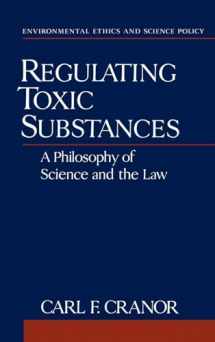
Regulating Toxic Substances: A Philosophy of Science and the Law (Environmental Ethics and Science Policy Series)
Book details
Summary
Description
The proliferation of chemical substances in commerce poses scientific and philosophical problems. The scientific challenge is to develop data, methodologies, and techniques for identifying and assessing toxic substances before they cause harm to human beings and the environment. The philosophical problem is how much scientific information we should demand for this task consistent with other social goals we might have. In this book, Cranor utilizes material from ethics, philosophy of law, epidemiology, tort law, regulatory law, and risk assessment, to argue that the scientific evidential standards used in tort law and administrative law to control toxics ought to be evaluated with the purposes of the law in mind. Demanding too much for this purpose will slow the evaluation and lead to an excess of toxic substances left unidentified and unassessed, thus leaving the public at risk. Demanding too little may impose other costs. An appropriate balance between these social concerns must be found. Justice requires we use evidentiary standards more appropriate to the legal institutions in question and resist the temptation to demand the most intensive scientific evaluation of each substance subject to legal action.


We would LOVE it if you could help us and other readers by reviewing the book
Book review



